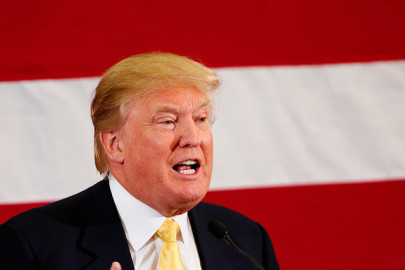By Peter Ward December 2, 2016
Japanese Prime Minister Shinzo Abe. ©CSIS, Center for Strategic and International Studies
Japanese Elders Back to Work
In Japan, where there is a shortage of labor, older workers are rejoining the workforce. The percentage of Japanese workers over the age of 65 has been steadily increasing since 2010, according to a story in The Wall Street Journal this week.
On Tuesday the Japanese government revealed the number of unemployed in the country fell to below two million for the first time since 1995. There are now 140 jobs for every 100 people looking, according government figures.
Japan’s working-age population has been decreasing since the late 1990s, as the country has a low birth rate and low immigration rates. But the number of employed Japanese people aged 65 or older has risen by 33% in the past five years.
This shortage of workers lets young and in-demand workers be picky, while the older citizens of Japan generally take the less glamorous jobs. “Our biggest problem is that there aren’t enough people. We aren’t an attractive industry,” Fumihiko Nakata, president of Japan Security Patrols, a Tokyo company that provides guard staff for large construction sites told The Wall Street Journal. “Young people who work in this industry find it hard to have dreams for a future.”
The fact that older citizens are entering the workforce is surely welcome news to Prime Minister Shinzo Abe, who has been hoping to get the elderly and women to make up the workforce shortfall.
Instagram “Influencer” How To
Some instagram influencers buy photos from professionals. ©Joseph Morris
The past decade has witnessed the rise of the Instagram “influencer.” The term refers to a person with a large and “engaged” audience on Instagram who is then paid to create, publish and post brand-sponsored photos or videos. Some Instagram influencers can charge up to $10,000 for a sponsored post on their account.
But how difficult is it to become an Instagram “influencer”? A feature in Bloomberg’s Businessweek this week suggests the hurdles are not great, provided you have a little money to invest.
Reporter Max Chafkin goes gonzo, attempting to turn himself into an Instagram influencer, using an agency that specializes in social media influencers. He ends up having to drop some dollars on photos, comments and followers.
It turns out that common practice among Instagram influencers is to pay a photographer both for selfies and for interesting eye-catching photos that can fill in the gaps between selfies.
He also pays a bot service to automatically post generic comments on other user’s Instagram photos, as a way to build audience. This helps, but not quickly enough, so he buys himself some followers: $15 for 500. After one month, Chafkin secures interest from a clothing designer to collaborate on an Instagram post. Success! He has become an influencer.
Trump’s Latest Picks All Gave Him Money

Donald Trump ©Michael Vadon
What do all of president elect Donald Trump’s recent staff appointments have in common? According to a story in The Washington Post this week, they were all major financial backers of his presidential campaign
Steven Mnuchin, Trump’s selection for treasury secretary, helped organize dozens of campaign fundraisers for the President-elect’s campaign, and personally contributed $425,000 himself through donations to the campaign, the Republican National Committee and state parties.
Wilbur Ross, picked for commerce secretary, hosted one of Trump’s first fundraisers at his New York estate, and contributed at least $200,000 himself, according to finance records. And Todd Ricketts, nominated for the deputy commerce secretary position, contributed nearly $344,000 to support Trump’s campaign.
When he was campaigning, Trump pledged to “drain the swamp” of special interests. He promised to remove lobbyists and people with money from positions of power within his government.
OPEC Cuts Production

Oil train, © Russ Allison Loar
Oil prices surged this week after Opec, the 14-nation oil cartel, agreed to cut production for the first time in eight years.
Many within the oil industry believed that the organization of oil producing nations would be unable to come to an agreement on the production cut, and that prices would stay relatively low as a result. But Opec announced on Wednesday it was cutting output by 1.2 million barrels per day from January 1.
Oil prices crashed two years ago after oil producers began producing supply in excess of market demand. Prices fell from over $100 a barrel to $40 in that time. Oil prices reached up to $53 per barrel on Thursday, up from $46 before the announcement was made.
The 14 nations will distribute cuts unequally, with the biggest producers taking the largest cuts. Saudi Arabia will cut production most dramatically, by just under 500,000 barrels per day. Iraq agreed to a cut of 210,000 barrels per day, and the UAE will reduce output by 139,000 barrels per day.
Neil Wilson, a senior market analyst at ETX Capital, told The Guardian that the deal was a triumph for the cartel. “There are a few doubts but, on the whole, Opec should be pleased with a job well done at long last. This is likely to keep crude closer to $50 than $40 for now.”
This Week’s Top Headlines
Dodd-Frank, in place after financial crisis, targeted by Trump and Mnuchin – Roger Yu, USA Today
Steven Mnuchin’s Defining Moment: Seizing Opportunity From the Financial Crisis – Rachel Louise Ensign, Anupreeta Das And Rebecca Ballhaus, The Wall Street Journal
Breitbart Urges Boycott of Kellogg After Brand Abandons Site – Nick Turner, Craig Giammona, Bloomberg
David Davis: UK may pay for access to EU single market – BBC
Airbnb Is Appeasing City Regulators With Rental Limits – Geoffrey Smith, Fortune
Eurozone unemployment rate below 10% for first time in 7 years – Claire Jones, Financial Times
China introduces 10% extra tax on ‘super cars’ – BBC
Rupert Murdoch set to lose $100m Theranos investment – Rupert Neate, The Guardian
Trump security circus is hurting business at Tiffany – Paul R. La Monica, CNN Money
U.S. Jobless Claims Rose to 268,000 During Thanksgiving Week – Ben Leubsdorf, Wall Street Journal
This entry was posted on Friday, December 2nd, 2016 at 4:02 pm. It is filed under Week in Review. You can follow any responses to this entry through the RSS 2.0 feed.
Comments are closed.
